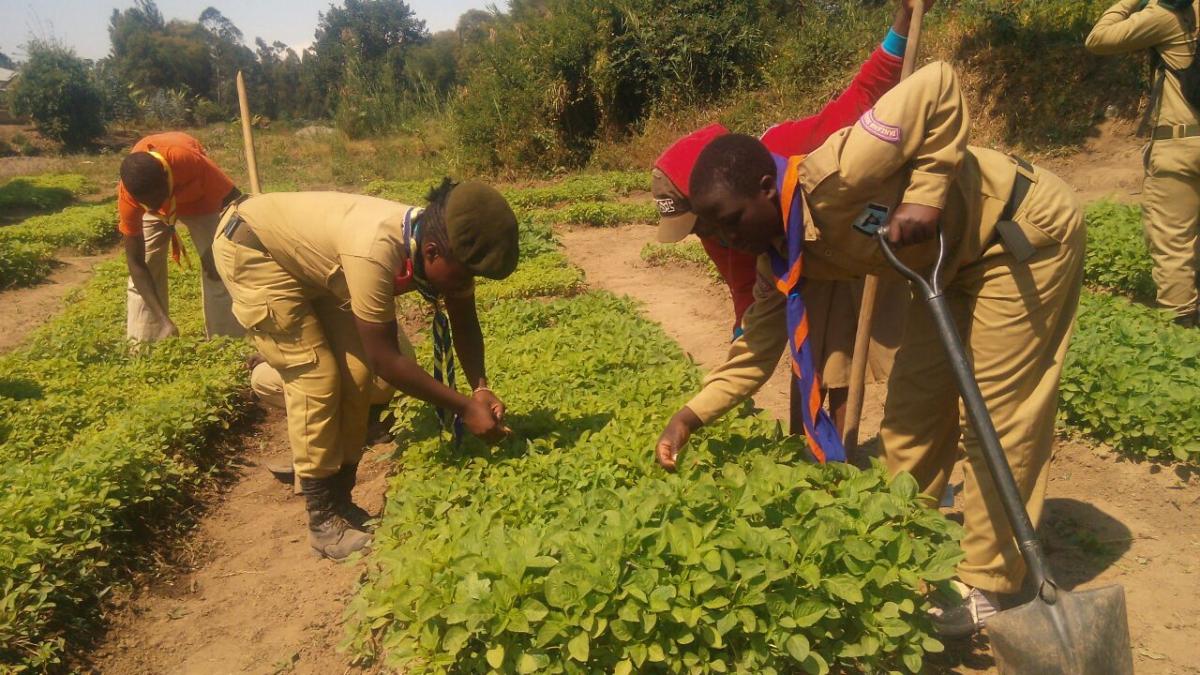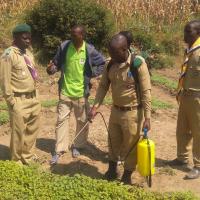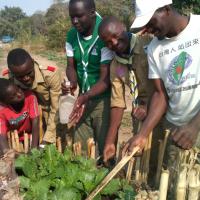
FOOD FOR LIFE AND THE FUTURE OF AGRICULTURE - TANZANIA
FOOD FOR LIFE AND THE FUTURE OF AGRICULTURE
Agriculture is the mainstay of our country’s economy. However, most young people do not enjoy agriculture hence left to older people who use traditional methods which have very low productivity. The project aims at developing positive attitude to young people towards agriculture and eventually application of technology and increae productivity and food security.
Young people have a very negative attitude towards agriculture. In Tanzania, agriculture is interpreted as one of prisoners’ punishment activity. Most young people have never seen their families prosper economically through agriculture. Agriculture is seen as an activity of the poor living in villages, which currently carries over 60% of the population. Traditional agriculture methodologies make it excessively labor intensive with a lot of waste along the way hence very poor food security methodologies. Additional rain or sun makes life very difficult in villages hence engaging the government in securing food for hunger from outside the country.
Food for Life project through scouting is a lifelong learning by doing activity. It makes the young people enjoy the fun of tilling the land, preparing trench beds and double digging for improving the soil fertility. The see immediate results in their vegetable gardens. The young people’s esteem is elevated by contributing to household food. They learn best practices in agriculture. About 800 households are overwhelmed by the results through the project. They see their children as heroes. The give them time for the gardens and provide them with support of good selected or highbred seeds. One improved tomato plant produces a full plastic bucket of twenty liters.
The households in this season (May to December) had enjoyed their children’s sweat in the gardens. They have saved from going to the market to buy tomatoes, eggplants, Chinese cabbage, lettuce, cucumber and cabbages. The project visibility has attracted over 1,000 non-scouts. These a potential future scouts. There is harmony in the families through these young peoples, engagements in the gardens. Parents would like to observe and see results. The project is thus contributing to peace building at family level.
There is a possibility of having surplus and hence selling it to by passers who often stop to watch these small gardens around the houses where these young people stay. In future with increased production then changing into entrepreneurship will be an option. This will be due to changed attitudes of the young people towards agriculture. The project will take three years from 2016. It is after this period that we shall have a proper impact evaluation since several seasons would have passed. The project definitely is contributing towards changing young peoples’ mindset positively.
Objectives of the projects
To contribute to the fight against hunger in Africa by equipping children and young people (aged from 6 to 26 years old) with agricultural, life and entrepreneurial skills so as to produce enough nutritious food for themselves and their families.
Major activities undertaken
• ToT for 20 Adult Scout Leaders and Scout Administrators
• Training of 60 Unit Leaders in the three pilot Districts
• Training of 1,500 Scouts from the three Districts by the Unit Leaders
• To involve 5,000 non scouts through inspiration and practice
• To establish 15 model garden 3 in each District
• To reach 1,700 households in the 3 Districts
Results achieved
• Twenty Adult Scout Leaders and administrators have trained since February 2016
• 60 Unit Leaders have been trained 20 from each of the three pilot districts
• 15 model gardens for training young scouts were established three on each of the pilot district
• 800 scouts have been trained through the model gardens from the three pilot districts
• 1,200 non scouts have been involved in the project through observing and getting inspired
• 800 households of trained scouts have been reached in the the three pilot districts
Immediate impact and long term impact
• The young people are enjoying the project since there are practical visible results of seeing the garden products and using them at home, the are so much inspired by contributing to the food at home though little. This is gradually increasing increase the number of participants
• In long term, young people will start enjoying financial accruals from the garden products and improve the garden productivity by engaging in best agricultural methods, henc improve food security.
Lessons learned
• Through learning by doing young and the visible outputs of the project, that is the garden products, young people can get highly inspired.
• Young people enjoy to contribute garden products to their household
• Parents and guardians having seen the visible results are getting inspired and offer support to their children in gardening

